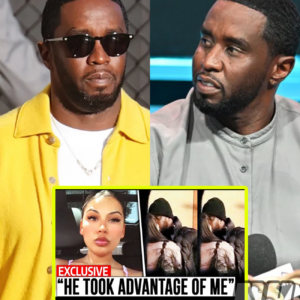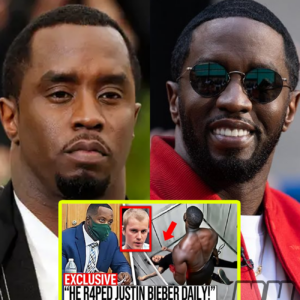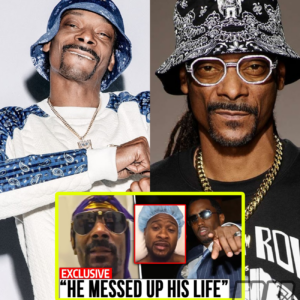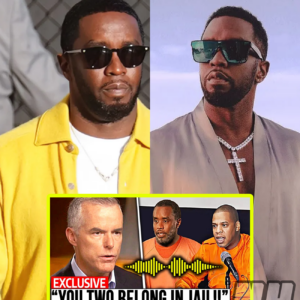Unraveling the Complexities of Abuse Allegations: The Case of Cassie Ventura and Diddy
In a recent revelation that shook the entertainment industry, Cassie Ventura, once signed under Diddy’s label and his girlfriend for over a decade, came forward with harrowing allegations of abuse against the music mogul.

Ventura’s claims, which include sexual assault, drugging, and sex trafficking, have sparked multiple lawsuits against Diddy, shedding light on a disturbing pattern of behavior that had long been hidden behind closed doors.
Ventura’s decision to break her silence and pursue legal action against Diddy marks a significant shift in power dynamics, as she courageously confronts the trauma she endured during their relationship.
Her willingness to speak out has not only opened the floodgates for others to come forward but has also prompted a critical examination of the entertainment industry’s complicity in enabling such abuse.
However, Diddy’s response to Ventura’s allegations has been met with skepticism. While he vehemently denies any wrongdoing, his swift settlement of Ventura’s lawsuit raises questions about the veracity of his claims. Some argue that his willingness to pay off Ventura suggests a tacit admission of guilt, while others view it as a strategic move to avoid further public scrutiny.
Moreover, the emergence of a video purportedly showing Diddy assaulting Ventura in a hotel hallway further complicates the narrative. The video, captured in 2016, aligns with Ventura’s description of the abuse she suffered at Diddy’s hands, adding credence to her allegations.
Yet, even in the face of damning evidence, there are those who seek to downplay or dismiss Ventura’s experiences, perpetuating harmful attitudes that minimize the severity of abuse.
In examining this case, it is crucial to acknowledge the broader societal dynamics at play. The culture of silence and complicity that surrounds instances of abuse, particularly within the entertainment industry, must be challenged.
Too often, victims are silenced or discredited, their voices drowned out by powerful figures intent on preserving their reputation and influence.
As men, it is incumbent upon us to confront and dismantle the toxic masculinity that enables and perpetuates abuse. We must reject the notion that abuse is a private matter and instead hold perpetrators accountable for their actions.
By amplifying the voices of survivors like Ventura and supporting them in seeking justice, we can begin to dismantle the structures of power that enable abuse to flourish.
Furthermore, the case of Cassie Ventura and Diddy serves as a sobering reminder of the complexities inherent in addressing allegations of abuse.
It underscores the need for a nuanced and compassionate approach that centers the experiences of survivors while also acknowledging the complexities of human behavior and relationships.
Moving forward, it is essential that we continue to challenge the systems of oppression and exploitation that enable abuse to persist. We must create spaces where survivors feel safe to come forward, knowing that they will be believed and supported. Only then can we begin to foster a culture of accountability and healing, where all individuals are treated with dignity and respect.
In conclusion, the case of Cassie Ventura and Diddy offers a stark illustration of the pervasive nature of abuse within our society.
It calls upon us to confront uncomfortable truths and to actively work towards creating a more just and equitable world for all. By standing in solidarity with survivors and holding perpetrators accountable, we can chart a path towards healing and transformation.
News
(VIDEO) Celebs that P Diddy EXPLOITED for Cash
P Diddy and the Dark Side of the Entertainment Industry The entertainment industry is no stranger to scandal and controversy, but the recent revelations surrounding P Diddy (Sean Combs) have brought to light a web of disturbing allegations and connections…
(VIDEO) Kevin Hart IN TEARS After New Leaks EXPOSE Him At Diddy’s After Parties!!
Kevin Hart: A Complex Journey Through Fame, Scandal, and Personal Growth Kevin Hart, the renowned comedian and actor, has led a life marked by both incredible professional success and deeply personal scandals. His journey from selling sneakers to becoming one…
(VIDEO) “He Ruined My Life” Former Diddy Employees TEAM UP To EXPOSE Him!
The Dark Side of Fame: Allegations Against Diddy and the Revelations from Former Employees The music industry is often glamorized for its glitz and glamour, but behind the scenes, it can harbor dark secrets and troubling behavior. Recently, Sean “Diddy”…
(VIDEO) “He’s Why Justin Bieber Is DEPRESSED!” Undercover FBI Agent EXPOSES Diddy
The Tumultuous History of Snoop Dogg, P. Diddy, and the East Coast-West Coast Rivalry Hip-hop history is fraught with feuds, friendships, and ever-changing alliances. Central to many of these stories are iconic figures such as Snoop Dogg and P. Diddy…
(VIDEO) “Diddy Did Usher Dirty Forever” Snoop Dogg EXPOSES Sean Combs!
The Tumultuous History of Snoop Dogg, P. Diddy, and the East Coast-West Coast Rivalry Hip-hop history is fraught with feuds, friendships, and ever-changing alliances. Central to many of these stories are iconic figures such as Snoop Dogg and P. Diddy…
(VIDEO) Undercover CIA Agent EXPOSES Diddy & Jay Z!
The Fall of P. Diddy: A Dismantling of Credibility and the Unfolding Legal Crisis Introduction In recent years, Sean “P. Diddy” Combs has found himself at the epicenter of numerous controversies and legal battles that have significantly tarnished his once-polished…
End of content
No more pages to load











